13 November 2025
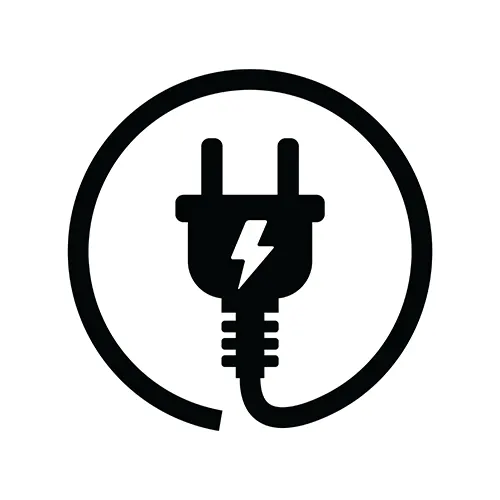
Attorneys for the state agreed in a stipulation filed in federal court Wednesday to delay the implementation of the law until an appellate court makes its decision in the case.
ALBANY — New York has agreed to delay implementation of the All-Electric Buildings Act, which was scheduled to go into effect in January and would prohibit natural gas and heating oil equipment in many new construction projects, including residences.
Attorneys for the state agreed in a stipulation filed in the U.S. District Court in Albany Wednesday to suspend regulations for the law’s implementation until an appellate court makes its decision in the case.
The appellate court, the Second Circuit U.S. Court of Appeals, has not yet added the case to its calendar but has allowed the groups that brought the lawsuit to expedite the appeal. Filings are due by late December.
The law was scheduled to take effect in January for new buildings that are seven stories or less. The same requirement would take effect for all other new buildings in 2029.
The lawsuit was filed two years ago by a series of trade groups and labor unions, including the New York State Builders Association and AFL-CIO, to invalidate the state’s ban on gas equipment in new construction.
They contend the state law is preempted by the federal Energy Policy and Conservation Act and is therefore unenforceable.
“This argument has no merit,” U.S. District Judge Glenn Suddaby wrote in a July decision in response to part of their argument.
The groups also contend that the law would exacerbate New York’s continuing housing crisis by making new construction less feasible and attractive for developers.
“The nation’s energy policy cannot be dictated by state and local governments; such a patchwork approach would be the antithesis of a national energy policy,” they said in the lawsuit filed in 2023.
“Further, millions of New Yorkers use natural gas, propane, and oil for home heating, cooking, and hot water, particularly in the coldest winter months, and the decision to outright prohibit the use of all fuel gas — even propane — in new buildings is at odds with citizens’ and businesses’ need for reliable, resilient, and affordable energy,” the civil complaint added.
The law has been a paramount part of New York’s strategy under the 2019 Climate Act to comply with its self-imposed mandate to reduce emissions from fossil fuels over the next two and a half decades.
The state’s energy officials have identified buildings as the top contributor to those emissions because of the wide reliance on natural gas for home heating and cooking. The intention of the law was to phase out those methods.
The regulations to implement it were adopted in October. Since then, its opponents, which include a coalition of Democrats from upstate New York, have called for its delay.
Representatives for Gov. Kathy Hochul did not immediately respond to a request for comment on the agreement.
8 October 2025
As many of you know, NEHPBA has been fundraising to challenge regulatory “gas bans.” I want to update you on where things stand.
After careful review, the plaintiff group unanimously decided we cannot move forward with a Massachusetts lawsuit at this time. Here’s why:
In short, filing in Massachusetts now could actually slow the path to the Supreme Court and risk weakening Energy Choice protections across New England.
Instead, the New York appeal presents the strongest opportunity. A win there would create a clear precedent and the best trajectory for success nationally—and here in Massachusetts. Contributions from MA members are directly supporting that effort. You can donate to the NYS appeal here.
At the same time, NEHPBA is actively engaged on state energy policy. Just this week, 11 members joined us at Advocacy Day at the State House to discuss energy choice, safety, and business challenges with lawmakers.
I encourage you to contact your representatives. I’ll provide email templates, talking points, and store visit invitations—and I’d be glad to join you.
Please reach out with any questions.
17 September 2025
All of the members of NEHPBA extend our gratitude to the Massachusetts legislators who joined us at NEHPBA/PGANE Advocacy Day. Your support helps strengthen the communities where our businesses live, work and serve. Thank you to all of the NEHPBA and PGANE members for making this event spectacular! Ray Murray, Inc., August West Fireplace, Done Right Chimney, Plymouth Fireplace, The Fireplace Showcase, Rinnai America, Eastern Propane, Propane Gas Association of New England, Northeast Distribution Ltd., Billy Sweet Chimney Sweep, National Chimney
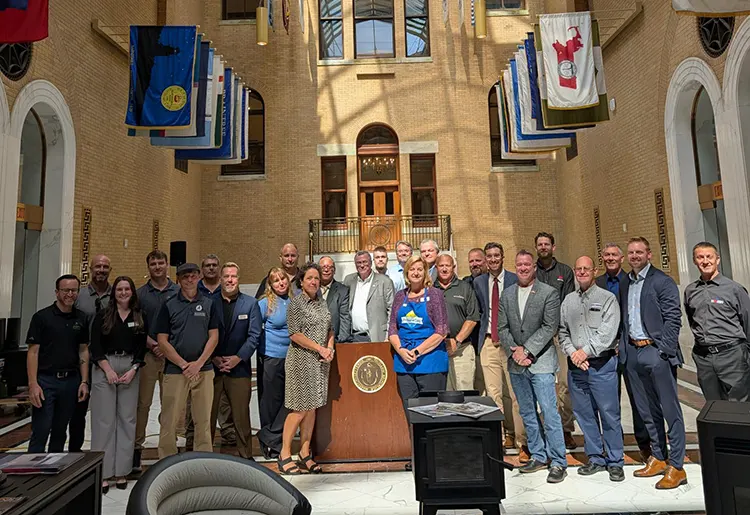
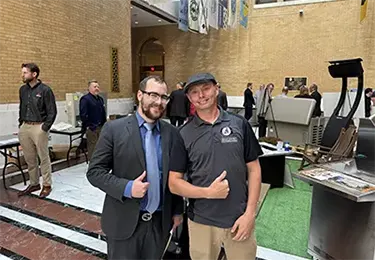
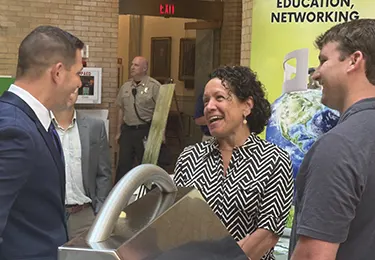
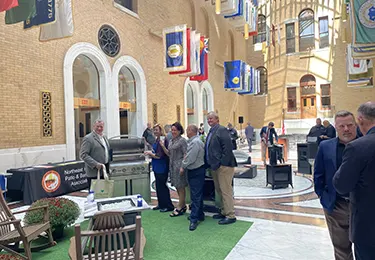
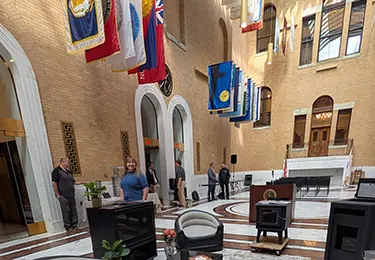
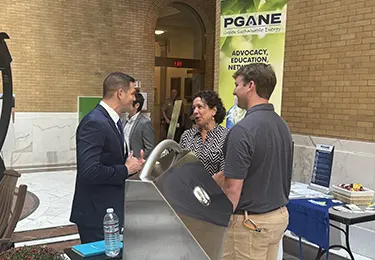
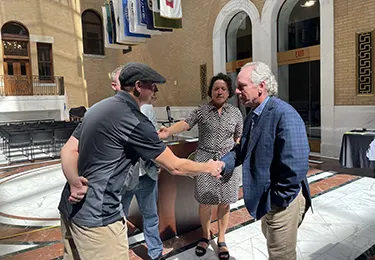
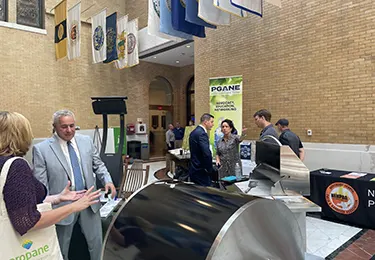
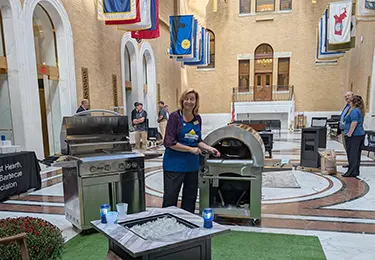
12 September 2025

Next week, on Tuesday, September 16, the U.S. House Energy & Commerce Subcommittee will hold a legislative hearing entitled “Appliance and Building Policies: Restoring the American Dream of Home Ownership and Consumer Choice.” The hearing will include discussion on H.R. 3699, the Energy Choice Act.
Introduced by Rep. Nick Langworthy (NY-23), the bill seeks to ensure that families and businesses retain access to a wide range of energy options—including natural gas, propane, and other reliable fuels—by preventing local governments from enacting blanket bans. This legislation is important for our industry because it could protect consumer access to fireplaces, stoves, grills, and outdoor products, which depend on these energy sources. It would also safeguard thousands of jobs supported by small businesses across the country.
The hearing is a critical step in advancing the Energy Choice Act. Following this legislative discussion, the bill could move to a markup session, where committee members may propose changes and vote to advance it to the full House of Representatives. If passed into law, the Energy Choice Act would provide industry stability and protect long-term consumer choice in home energy use.
Through multiple calls to action and meetings on Capitol Hill, HPBA members have raised this profile of this important legislation, which now has 83 cosponsors.
To watch the hearing, follow the Committee’s calendar page below and a link will be made available soon for more details, including a list of witnesses and testimony in addition to a livestream of the hearing.
Thank you for your help in advocating for this important legislation. Stay tuned as we continue to monitor progress of this bill and be on the lookout for future calls to action to contact your Representative in support of the legislation.
16 July 2025

The Northeast Hearth, Patio & Barbecue Association (NEHPBA) is urging New York Governor Kathy Hochul to reconsider her plan to eliminate the “100-Foot Rule,” a longstanding regulation that allows homeowners to access natural gas line extensions within 100 feet of existing infrastructure at no additional cost. Removing this rule could severely impact energy choices, affordability, and the future of home heating in New York.
Click here to view the letter.
8 July 2025
 On July 1, Maine became the 28th fuel choice state when Governor Janet Mills signed into law “An Act to Preserve Heating and Energy Choice by Prohibiting a Municipality from Prohibiting a Particular Energy System or Energy Distributor.” This new law safeguards fuel choice by ensuring that local governments cannot ban or restrict access to safe, commercially available energy systems, including propane, natural gas, oil, wood, and renewable fuels. With Governor Mills' signature, Maine has taken a powerful stand for consumer rights, energy equity, and economic stability.
On July 1, Maine became the 28th fuel choice state when Governor Janet Mills signed into law “An Act to Preserve Heating and Energy Choice by Prohibiting a Municipality from Prohibiting a Particular Energy System or Energy Distributor.” This new law safeguards fuel choice by ensuring that local governments cannot ban or restrict access to safe, commercially available energy systems, including propane, natural gas, oil, wood, and renewable fuels. With Governor Mills' signature, Maine has taken a powerful stand for consumer rights, energy equity, and economic stability.
“This is a significant win for the hearth industry in Maine,” said Karen Arpino, Executive Director of Northeast HPBA. “This effort was led by a strong coalition of NEHPBA members, HPBA staff and industry partners such as the Maine Energy Marketers Association and the Propane Gas Association of New England. Their work to engage legislators and sending letters urging Governor Mills to sign the bill was instrumental.”
The law is especially important for Maine’s rural and off-grid communities, where residents rely on propane or wood heat as an affordable primary or backup energy source. Rather than imposing one-size-fits-all restrictions, the law supports an inclusive approach that promotes innovation and the adoption of cleaner technologies—without banning proven and efficient existing systems.
“This is a major victory for the small businesses, contractors, and energy providers that serve Maine communities every day,” said Jason Tolleson, HPBA Senior Director of Government Affairs. “By preserving access to a diverse mix of heating and energy sources, this law ensures that consumers in Maine can choose the solutions that work best for their homes, budgets, and energy needs.”
HPBA and NEHPBA extend their sincere thanks to Governor Mills, Maine Senator Matthew Harrington (R-York), and all legislative sponsors for their leadership and commitment to practical, equitable energy policy. The association looks forward to continuing its work with the affiliates and coalition partners to expand access to affordable, reliable, and sustainable heating and outdoor living solutions across the region.
On the national level, HPBA and its members are working to urge Members of Congress to cosponsor the bipartisan Energy Choice Act introduced in the U.S. House (H.R. 3699) and Senate (S. 1945), a federal bill that would prohibit state and local governments from banning energy services based on the type or source of energy—such as natural gas.
While adding Maine to the list of fuel choices states is another step in the right direction, Federal preemption is needed to counter states and municipalities who refuse to give consumers choice in how they choose to heat their homes.
10 June 2025
Northeast Hearth, Patio & Barbecue Association celebrated 40 years in Saratoga, NY! We had a blast with vendors, classes, government affairs updates, an awards ceremony and banquet and our first ever Pub Crawl! Tuesday included a short government affairs training session then a trip to the State House in Albany where we met with 19 different legislators! Watch the video, if you weren't there you'll feel like you were!
See what our members have to say!
"The retailer best practices panel was the best ever. Nobody should have missed that meeting!" - Bret Watson, CEO/President, Jotul North America
The event was awesome, from the classes, government affairs, the golf, the location, ALL OF IT. You and the NEHPBA team did an amazing job. Then you drop this video, hell ya, it was so well done, it makes you proud to be part of this organization and this industry. The business that is talked about, the information provided about the fight for our industry, the amount you learn, the connections you make, and the fun by all these great industry people, in one word, awesome! If you haven't, you need to send this to every hearth dealer, distributor, and manufacturer so they see what NEHPBA is all about. If they don't join NEHPBA then, they just don't understand what value looks like... To all of you who work so hard to help and protect our industry, THANK YOU! - Chip Brown, Vice President, Northeast Distribution, LTD
"I want to thank you for all NEHPBA does for us, you're truly amazing." - Cory Simmons, The Stove Shoppe
"It was so fun up there in Saratoga with you all. Thanks for all that you do!" - John Forshaw, Forshaw
"I film and photograph a lot of events, but I realized I love to do it because I love THIS event! The energy, the people, the passion - every year, it reminds me why I love what I do. Grateful to be part of it again!” – Ted Borgman, Bright Spot Films (Your photographer & videographer!)
"Congrats on a great annual NEHPBA event. I wanted to share a few thoughts with you regarding the show. The NEHPBA show really stands out. Your affiliate has incredible participation from the dealers in the territory. Additionally, the NE territory has some topnotch distributors and reps to support the industry (and the dealers) in the area. I can’t imagine how the event would have turned out if the weather would have cooperated. I know I don’t have to point it out, but across the country, our industry is full of men. Many of which are aging and appear to have no apparent succession plan. I am impressed with the young leadership that I saw representing the dealers (owners, buyers, technicians,…) in the NE part of the country. Additionally, in my opinion, the NE chapter establishes a benchmark in what I’d like our industry to eventually look at a national level. From the board to the distributors, to the dealers, and to the reps, the chapter is packed full of professional and smart women who are leading the industry on a successful path. Everyone should agree that it’s not important to just have diversity, but to have diversity AND have highly intelligent and qualified people in every role is rare and refreshing. That is clearly the recipe for success for the NEHPBA. Again, congrats on a great show and here’s to many more." – Kent Parker, VP of Sales, SKYTECH PRODUCTS GROUP
"Great event!!! Ty!!!! Loved all the talks. Very informative. Fun, relaxing well run event. We will be definitely booking to return every year!! :)" - Andy Parker, RodstationUSA
Want to see all the pictures? Click here!
(Photographer & Videographer contact info: Ted Borgman - brightspotfilm@gmail.com - 508-733-4076 - brightspotfilms.com)
24 March 2025
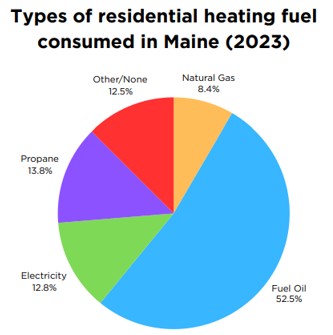
March 20, 2025
RE: LD 556 - An Act to Preserve Heating and Energy Choice by Prohibiting a Municipality from Prohibiting a Particular Energy System or Energy Distributor
Dear Members of the State and Local Government Committee,
My name is Karen Arpino, and I am the Executive Director of the Northeast Hearth, Patio & Barbecue Association (NEHPBA). I am writing to express strong support for LD 556 (or SP 218), "An Act to Preserve Heating and Energy Choice by Prohibiting a Municipality from Prohibiting a Particular Energy System or Energy Distributor."
NEHPBA is a trade association representing more than 250 individual member hearth and fireplace retail and related companies throughout the Northeast. The vast majority of our members are independent “mom and pop” small businesses that play a significant role in the communities and markets they serve across the state of Maine.
Gas appliances, particularly fireplaces and stoves, serve as a crucial secondary heat source, especially in a cold state like Maine where winter storms can, and have, caused power outages. Without access to these options, families could be left without a dependable way to heat their homes during extreme weather events.
NEHPBA strongly urges the committee to vote unanimously Ought to Pass on this bill. We all want a cleaner environment, and consumers also want the right to choose what energy source works best for their homes and businesses. In Maine, more than 52% of homes and businesses use heating oil, almost 14% use clean propane, more than 8% use natural gas, almost 13% use electricity, and nearly 9% use another fuel source including primarily wood for heating. This bill protects the right of our citizens to decide which energy is right for them.
Across the country, municipalities are adopting policies that ban gas hookups in new construction, eliminating consumer choice and raising energy costs for homeowners. LD 556 would prevent such restrictive mandates in Maine, protecting both consumers and small businesses from unnecessary burdens while ensuring that affordable and reliable heating options remain available.
Heat pumps need the most energy from the grid during the times when the grid is most stressed. When the grid is stressed, the electricity plants switch from using natural gas to diesel or heating oil to generate electricity. For example, January 19, 2025, recorded a peak hourly demand of 19,600 megawatts (MW). The grid required running older thermal generating plants that burn oil and coal. In fact, from January 20 to January 21, 2025 thermal plants that burn oil provided more electricity to the ISO-NE electricity grid than plants that burn natural gas, which is relatively uncommon. At the same time, a coal-fired plant that burns coal in the region supplied close to 300 MW to the grid from January 19 to January 25, 2025. Two other major sources of electricity in New England were steady suppliers during the cold snap. The region’s three nuclear reactors steadily provided 3,350 MW of power throughout the period. This is why we need alternative energy sources to heat our homes during extreme, harsh winter weeks, especially when these alternative energy sources do not put stress on our fragile electric grid.
LD 556 preserves local control over safety and health.
In fact, 88% of Maine voters surveyed believe Mainers should have the right to choose how they heat their homes and businesses.
Maine consumers need an “all of the above” approach to heating. What may look like the best, least expensive, or most versatile energy option today may not be the best solution tomorrow. Diversification of resources is critical to addressing the long-term needs of Maine residents, businesses, and government.
For these reasons, I respectfully urge the State and Local Government Committee to advance this bill and keep Maine’s residents warm and small businesses protected.
Thank you for your time and consideration,
Karen Arpino
Executive Director
Northeast Hearth, and Patio Association
20 March 2025

Today NEHPBA submitted this testimony in opposition to the Rhode Island H5450 RELATING TO PUBLIC PROPERTY AND WORKS -- ALL-ELECTRIC BUILDING ACT. Tonight, Sean Rosser (Hearthside Fireplace & Patio) and I will be testifying in-person at the Rhode Island State House.
To Whom it May Concern,
My name is Karen Arpino, and I am writing on behalf of The Northeast Hearth, Patio & Barbecue Association. The Northeast Hearth, Patio & Barbecue Association (NEHPBA) is a trade association representing more than 300 individual member hearth and fireplace retail and related companies throughout the Northeast. The vast majority of our members are independent “mom and pop” small businesses that play a large role in the communities and markets they serve across Rhode Island.
The Northeast Hearth, Patio and Barbecue Association (NEHPBA) opposes, as written, H5450 and encourages the legislature to preserve consumer choice with respect to heating and cooking options for Rhode Islanders.
NEHPBA recognizes the changing landscape of the energy and fossil fuel industry. We are committed to working with government officials and regulators at all levels to increase access to more sustainable and climate-centric fuel sources throughout our homes and businesses to bridge the gap as new fuel technology develops. We are committed to addressing the climate crisis and aspire to be a valuable and reasonable partner in this important conversation in the months and years ahead.
This bill, as it is currently written, would negatively impact our Rhode Island members and their customers by increasing the cost of electricity and limiting the availability of the fuel that our products use. Consumers deserve a choice when deciding what fuel source is used to heat their homes. We encourage Rhode Island legislators to preserve consumer options with respect to heating.
Rhode Island’s electricity rate is already the 6th highest in the county at 25.31 cents per kilowatt hour while the national average is 12.89 cents per kilowatt hour Source. Electrification will put more pressure on the grid, bringing up the cost even more. Last month, the demand on New England’s grid outpaced supply, leading dramatically to this increase in the cost of utilities.
Presently, natural gas heats more than half of Rhode Island’s homes. With this in mind, we urge this Committee to carefully consider the negative impact House Bill 5450 would have on families – particularly those living below the poverty line and seniors on fixed incomes – as well as small businesses in Rhode Island.
Consumers Should Have the Right To Choose:
Policymakers should strive to give consumers options. Competition is imperative to protect consumers while driving innovation, ingenuity, and progress. Policymakers should not pick winners and losers but should allow resources and technologies to compete. Free market policies provide the consumer with options to select what best fits their unique set of needs. An all-electrification requirement would remove natural gas from the heating and cooking markets, stripping the consumer of the right to select the heating fuel that best suits their needs. A ban on heating fuels represents the worst type of ban because it effectively affords consumers only one option – electricity – with respect to heating and cooking.
Reliability: The Role of Natural Gas in Reducing Emissions and Balancing the Power System:
An all-electric heat requirement is doubly bad public policy, which could fail to meet its intended goals. These policies increase the demand for electricity significantly without provisions that ensure that resources are in place to meet this incremental demand. This means that the state will likely have to rely on the use of older and less efficient power plants, burning coal and oil, and importing electricity from states that are not as thoughtful about how it is generated. Moving to all-electric heating with the existing infrastructure will result in more emissions rather than less. The state should not pass any bill that stigmatizes or bans the use of natural gas.
When Electricity Goes Out, Heat Goes Off and People are Left in the Cold:
A move to all-electric heating and cooking will also leave Rhode Islanders at the mercy of a power grid that is increasingly reliant on intermittent renewables. We have seen the potential consequences of this in Texas and California – both of which rely heavily on wind and solar. When these resources underperform due to the wind not blowing and the sun not shining, grid stability and reliability are compromised, and it can leave residents in the dark and cold. A study from GTI Energy found that power system outages are more than 100 times more frequent than gas system outages.
Cost:
Good public policy considers cost impacts on consumers, especially those in overburdened communities. All-electric legislation will likely increase costs. According to research conducted by the National Association of Home Builders, all electric homes cost more upfront as compared to gas homes. State policymakers should also consider that increased electricity use will also impact the need for additional electric bill assistance. Gas fireplaces and gas fireplace inserts can be used as a space heater during the shoulder months. Rather than turning on the entire home heating system in March and October, homeowners can instead use their gas fueled fireplaces and inserts to heat commonly used spaces.
For all of the reasons outlined above, NEHPBA respectfully opposes legislative and regulatory efforts that remove consumer choice and ban the use of natural gas in new building construction.
Sincerely,
Karen Arpino
Executive Director
Northeast HPBA
9 January 2025
Yesterday, Wednesday, January 8, 2025 was the opening day of the CT legislative session - Gov. Lamont gave his State of the State address. There were encouraging remarks on natural gas — we believe that CT legislators will be reluctant to take action that would increase consumer costs…. See some of Lamont's comments below:
Energy costs are on the governor's mind
Lamont devoted a large chunk of his speech to energy costs, an increasing subject of concern for lawmakers following spikes in electric rates last summer.
"These high prices impact all of us — working families, seniors on a fixed income, small businesses and large manufacturers," the governor said. "Everyone was mad as hell looking at their bills following the hottest July in recorded history, and I can see why."
To address the issue, Lamont proposed increasing Connecticut's energy supply through renewable sources such as wind and nuclear power, as well as through natural gas, which he described as essential to the state "for the foreseeable future."
Though the remark about natural gas won't endear Lamont to Connecticut's environmentalists, the governor soon pivoted to the importance of energy efficiency.
"Of course, the cheapest and most timely solution to bring down demand is energy efficiency," he said. "The zero-pollution option is the electricity we do not use."
7 November 2024
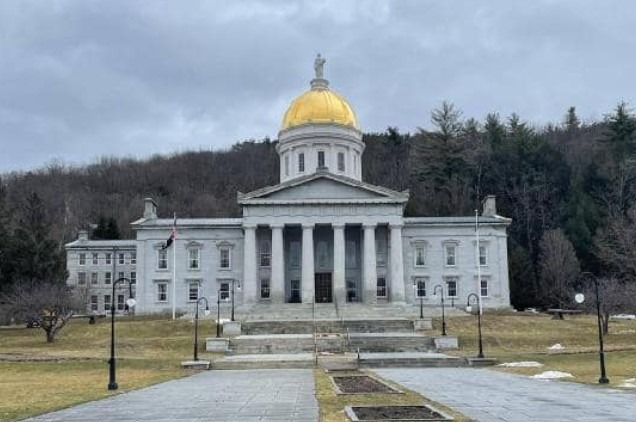
Governor Phil Scott cruised to his fifth term in office with more than 70% of the vote. In the race for Lt. Governor, Republican John Rodgers defeated the incumbent, Progressive/Democrat David Zuckerman.
The election returns the Democrats to power in Montpelier in both the House and the Senate, but without the supermajority they have had for the past two years.
The Democrats lost six seats in the Senate:
The split in the Senate is now 17 Democrats/13 Republicans, which is enough votes to sustain a veto from Governor Scott.
There were also some notable races in the House where the incumbents lost to Republican challengers, including:
This shake-up will impact several key leadership positions in the House and Senate. Already, there is a contested race to be the next Speaker of the House, and this is likely to intensify over the next few weeks.
-Matt Cota, Meadow Hill (VT Lobbyist for NEHPBA)
23 October 2024
[Coverage Developing] Lawmakers will not bring compromise clean energy legislation forward for a vote Monday and are targeting action for later in the week.
House and Senate Democrats announced a deal in principle Thursday on a wide-ranging conference committee bill that had been jammed in tricky negotiations for months, and the Senate clerk's office said just before 10 a.m. Monday that a final version still had not been filed.
Top negotiator Sen. Michael Barrett told the News Service he does not expect the lengthy, complicated bill to emerge for a vote Monday, when both branches will gavel into session at 11 a.m.
The bill is expected to emerge first in the Senate since the Senate initiated the conference committee process.
"The Senate hopes to take up the final document by Thursday at the latest," Barrett said.
It's not clear whether Republicans who opposed earlier versions of the bill will try to delay its advancement, an option available during informal sessions when the branches usually meet without a quorum present.
Senate Republicans Ryan Fattman and Peter Durant as well as 25 House Republicans voted against the underlying bills (S 2838 / H 4884).
Democrats last year showed up for an informal session to create a quorum and overcome Republican opposition to a spending bill.
Legislative leaders have also signaled an openness to suspend the rules and reconvene a formal session on a separate stalled economic development bond bill, and the roll call votes allowed in that setting could also push the clean energy bill forward if that path is chosen.
Chris Lisinski - SHNN
17 October 2024
OCT. 17, 2024.....Another significant piece of legislation is ready to spring from protracted negotiations and onto the House and Senate floors for possible votes before the Nov. 5 elections.
House and Senate Democrats announced a breakthrough Thursday morning on "comprehensive climate and clean energy siting and permitting legislation," calling for a vote soon on a major bill that stumbled at the traditional end of formal legislative business in July.
Rep. Jeff Roy of Franklin and Sen. Michael Barrett of Lexington, the lead negotiators tasked with achieving compromise on wide-reaching bills (S 2838 / H 4884) each branch approved this year, said they were finalizing details and plan to submit a final proposal "in the coming days."
"We are proud to announce that we have reached an agreement in principle that resolves the differences between the House and Senate versions of the comprehensive climate and clean energy siting and permitting legislation," the duo said in a statement. "Massachusetts must continue to be a national leader in the effort to combat climate change, a prerequisite for which will be transitioning to a clean energy economy and creating high-quality jobs in the process."
In separate interviews, both chairs of the Telecommunications, Utilities and Energy Committee described their negotiations as complicated, difficult and exhaustive. But both sang from the same hymn sheet Thursday and described the final product as a "great" bill that includes priorities of each branch -- and one that they think is likely to win the governor's signature as well.
"It comes with the turf," Roy said Thursday about the months of bumpy negotiations to get to Thursday's announcement of an agreement. "I mean, this is probably one of the most complex areas of government today. So I'm not surprised, but I'm glad we're here."
Barrett told the News Service, "Everything that ends well has to be considered worthwhile, and this process was labyrinthine but to a very good end. I think the House gets a lot of what it wants. I know the Senate is very satisfied."
The agreement, which has not yet been filed in actual bill form, revolves around the permitting and siting reform language that Roy, Barrett and the Healey administration previously agreed to, Roy said. Barrett said the conference agreement uses siting and permitting language from the Healey administration as a "base case," but lawmakers made a "few improvements."
There is general agreement among developers and activists that the current process for permitting and siting clean energy projects is too slow and cumbersome, and that changes are necessary if the state is to scale up its clean energy efforts as much as will be required to meet its mid-century net-zero commitment.
After the branches failed to reach agreement at the end of formal sessions, Healey, who did not file her own climate bill, attached siting and permitting reform language her administration drafted to a closeout budget bill in an attempt to renew action on that front.
"Governor Healey is excited that the Legislature has reached an agreement on this critical climate bill that will strengthen Massachusetts' global leadership in creating clean energy jobs and reducing costs," a spokesperson for the governor said Thursday morning. "She looks forward to receiving it."
Barrett said Healey's proposal to tackle just about only permitting and siting through a different bill while he and Roy continued to negotiate a larger energy compromise was "not helpful." He said the lesson from this conference committee is that "the Legislature keeps on working past any interim deadlines it might set for itself."
"It's important for the administration to acknowledge the Legislature gets to 'yes' if left on its own," Barrett said. "I hope that point is not lost on anyone."
Crafting A Compromise
Acknowledging that building out the grid for clean energy will increase electric bills for Massachusetts residents, the Senate included in its energy bill a focus on ramping down natural gas programs as a way to shield ratepayers. While the Senate had to forgo some of its ideas in the compromise, the agreement is expected to amend the regulatory definition of a gas company to allow those utilities to make, sell or distribute network geothermal energy, which could open the door to a shift in business model for some existing gas companies.
Roy said his concern all along was that the Senate's approach "was moving too fast to decommission gas" at a time when 50 to 60 percent of the energy being generated on any given day comes from natural gas supplies.
"Until we had a robust renewable network in place, I didn't think we could rush into that," he said. "Luckily, we reached a compromise that the decommissioning is not going to take place as fast and the Senate did agree to soften the language to give us more time."
Barrett, who has for years argued that it is critical for the state to offset the higher costs of electrification so ratepayers don't rebel against the broader clean energy transition, said he is satisfied that the compromise will still "protect ratepayers on the gas side even as we build out the electric grid."
Roy added, "I ran this all by the unions who are stakeholders in this process and the utilities who are stakeholders in this process. Once we got buy-in from them, we felt comfortable moving forward."
The agreement will also include language related to the procurement of energy storage and an option for purchasing nuclear power from Millstone Nuclear Power Plant in Connecticut or Seabrook Station Nuclear Power Plant in New Hampshire, the senator said. That could be key to a deal Healey has reportedly been discussing with Connecticut Gov. Ned Lamont to get his state to buy into an offshore wind project with Massachusetts. On the offshore wind front, the agreement will give the state the ability to negotiate 30-year contracts for power rather than the current 20-year deals.
Roy described the nuclear power procurement option in the agreement as "a limited one" that allows the administration to coordinate with other states "to enter into contracts to procure clean energy, and we specifically made reference to opening it up to existing nuclear facilities."
Barrett said the agreement is also expected to include "lots of important breakthroughs in terms of outfitting the state with an EV charger network, some very important housekeeping details around heat pumps," and changes to the Massachusetts Port Authority charter that will require the agency to consider reductions in greenhouse gas emissions along with regional economic growth.
The Senate's bid to outlaw the competitive electric supply industry from taking new customers, an idea supported by Attorney General Andrea Campbell, and its attempt to overhaul the state's bottle deposit bill did not survive into the final product.
House-originated language to require the Department of Energy Resources to forecast EV charger demand through 2045 and to create a statewide network for fast-charging hubs will be included, according to Roy, as will language shifting the regulation of EV infrastructure from DOER to the Division of Standards.
And Massachusetts would become the first state in the nation to recognize fusion in its list of RPS Class 1 renewable generation sources. For decades, researchers have been trying to make nuclear fusion a realistic option for carbon-free energy generation and "a major scientific breakthrough decades in the making" in late 2022 has brought it closer to reality. In Devens, Commonwealth Fusion Systems is working on "a compact fusion device that will prove fusion can work as a commercial energy source for the first time in history."
"Us taking that step is a real boost for that industry and I'm happy we're first in the nation on that," Roy said.
Process To Passage
Almost all Republicans voted against the original bills in each chamber, complicating -- but not prohibiting -- the route to final passage during this post-July 31 period of informal sessions when any single lawmaker's objection can stall a bill's movement. Roy and Barrett both said they are talking to the minority leaders in their chambers about advancing their compromise. Roy noted that House Minority Leader Brad Jones is a member of the clean energy conference committee and participated in its discussions and said his conversations with Jones have been about "seeing if it's something he would be comfortable recommending to his members."
"We'll see the response on that. And if that's not done, I think we'll have to just bring in more members to have a quorum on the day we do it," he said.
Informal sessions almost always take place without a quorum (half of the members of a branch plus one) and the method that any lawmaker can use to stop something from advancing is to doubt the presence of a quorum. Last December, House Republicans used that tactic to stall action on a key spending bill that featured funds for emergency family shelter. But after three failed attempts, House leaders got enough Democrats to attend an informal session and were able to pass the bill over the GOP dissent.
Barrett noted that the clean energy compromise will come up first in the Senate and said he hopes the branches can pass the conference agreement onto the governor's desk "relatively soon." He also mentioned the potential for the Senate to call in enough Democrats to constitute a quorum in order to muscle the compromise through over Republican opposition.
"But we will definitely get there," he said, dismissing possible minority party-related delays as temporary.
-END-
SHNS 10/17/2024 statehousenews.com
4 October 2024
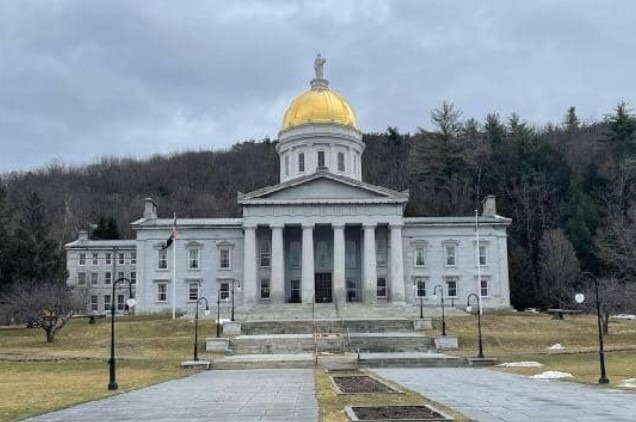
The Vermont Public Utility Commission has issued a draft rule for the Clean Heat Standard. Download here.
The PUC's Status Report on the Clean Heat Standard is far more revealing. Download here.
Here are the key takeaways from the Status Report:
"The Clean Heat Standard, as currently conceived, requires substantial additional costs and regulatory complexity above the funding needed to accomplish Vermont’s greenhouse gas emission reduction goals.”
“The Clean Heat Standard would require establishing a credit marketplace managed by what is likely to be a costly credit platform, the potential for fraud and market manipulation, the appointment of new or varied default delivery agents with administrative costs of their own, and the participation and regulatory engagement of hundreds of fuel dealers and other actors.”
“Our work over the past year and a half on the Clean Heat Standard demonstrates that it does not make sense for Vermont, as a lone small state, to develop a clean heat credit market and the associated clean heat credit trading system to register, sell, transfer, and trade credits."
“Because the Clean Heat Standard introduces these additional regulatory hurdles and costs, the Commission is considering other options to achieve Vermont’s greenhouse gas emission reduction goals for the thermal sector.”
Have more questions? Go to CleanHeatVT.com or contact NEHPBA!
Written by NEHPBA lobbyist, Matt Cota (Meadow Hill)
11 September 2024
[Coverage Developing] Gov. Maura Healey filed a supplemental budget bill Wednesday to close the books on fiscal 2024, and also signaled to lawmakers that she is tired of waiting for them to reach compromise on clean energy project siting and permitting reforms.
The closeout budget for the fiscal year that ended June 30 would appropriate $714 million (a net cost to the state of $149 million after offsets) to cover deficiencies. It also puts $590 million towards "the state's future stability" by making deposits into reserve accounts, including by redirecting some capital gains revenues.
The bill additionally includes "several essential and timely provisions related to clean energy siting, permitting and procurement that were the subject of debate in the Legislature as part of a climate bill at the close of formal sessions in July," Healey said in her filing letter.
"While a final bill has not yet reached my desk, these issues remain before a conference committee and I respectfully ask that you consider advancing these items in the coming weeks so that we can capitalize on the potential to grow our clean energy sector and advance our climate goals," the governor wrote to lawmakers.
The House and Senate each passed legislation taking aim at the complicated process to approve clean energy projects and incorporating reforms meant to modernize the electric grid to accommodate more energy from cleaner sources. Both also loaded their bills with their own policy priorities and the sides have been unable to agree on a compromise, even though key House and Senate lawmakers worked with the administration to craft the language around permitting and siting reforms.
Fiscal year 2024 tax collections of $40.8 billion beat fiscal 2023's total by $1.636 billion or 4.2 percent and topped the fiscal 2024 benchmark that was revised downward by $1 billion in January by $967 million or 2.4 percent, the Department of Revenue announced last month. But all of that overage and then some came as a result of the state's new high-earner surtax, leaving a budget gap of $233 million.
Healey said Wednesday she wants to "strategically allocate" $225 million of the excess surtax revenue to support education and transportation initiatives as a way to help close the non-surtax revenue gap. "The supplemental budget will further our efforts to make life more affordable for people in Massachusetts – from child care to school meals to rent – while also advancing our clean energy economy, supporting public health hospitals, and improving our communities’ ability to respond to disasters,” Healey said. “We’re grateful for the Legislature’s partnership to lower costs, grow our economic competitiveness, and ensure a balanced and responsible budget.”
Source: State House News
19 August 2024

Northeast HPBA (NEHPBA) held Lobby Day at the Massachusetts State House in Boston on June 26. They had 14 scheduled meetings and several other impromptu ones! Very effective conversations were had, and it was a GREAT time!
Karen Arpino, Executive Director for NEHPBA, shared, "I want to give a very special "Thank You" to Curtis Ludlow with August West Chimney, Sean and Sandy Rosser, and Josh Coutu with Hearthside Fireplace & Patio, Bruce Keltie with Commonwealth Fireplace & Grill, Karen DiVerdi with Enchanted Fireside, Ken Lemire with East Coast Sales, Shaun Huggins with Ray Murray Inc, Jeff Souther with Northeast Distribution Ltd, Joel Etter with Hearth & Home Technologies, and our lobbying team Ben Josephson and Phil Wettengel with O'Neill & Associates for taking the time out of their busy schedules to participate in this very important work."
Even though there were bills on the floor, many legislators took the time to meet with us - Representative Arena DeRosa, Representative Schmid, Representative O'Day, the Exec Office of Housing & Livable Communities, Senator Cyr's office, Senator Rush, Senator Tarr, Senate President Spilka's office, Senator Moran, Senator Kennedy's office, House Chairman Roy, Representative Howitt, Representative Jones, and Senator Mark's office as well as many others.
"We deeply appreciate and respect the legislators who took the time to meet with us while in session," expressed Arpino.
7 March 2024
Monday:
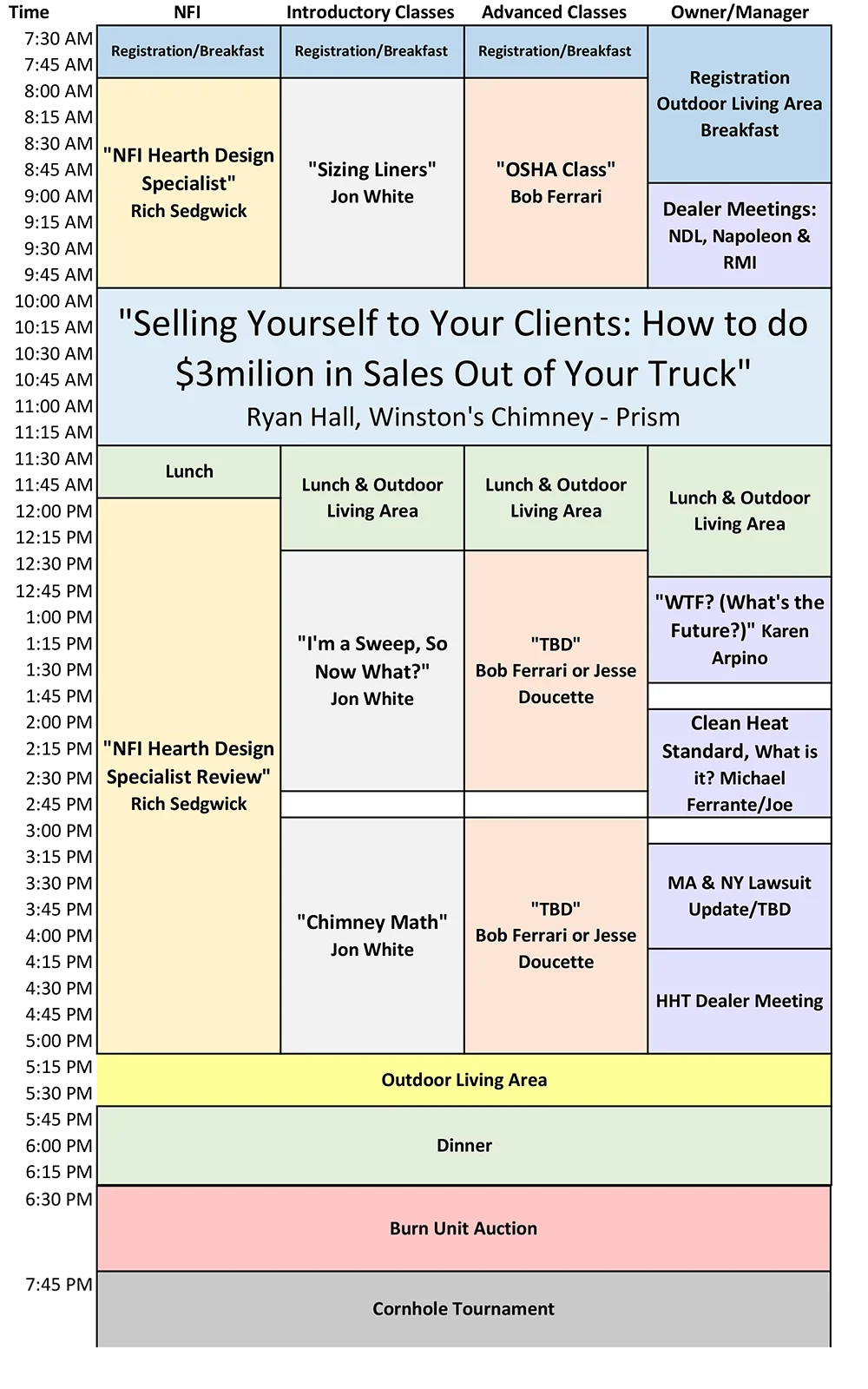
Tuesday:
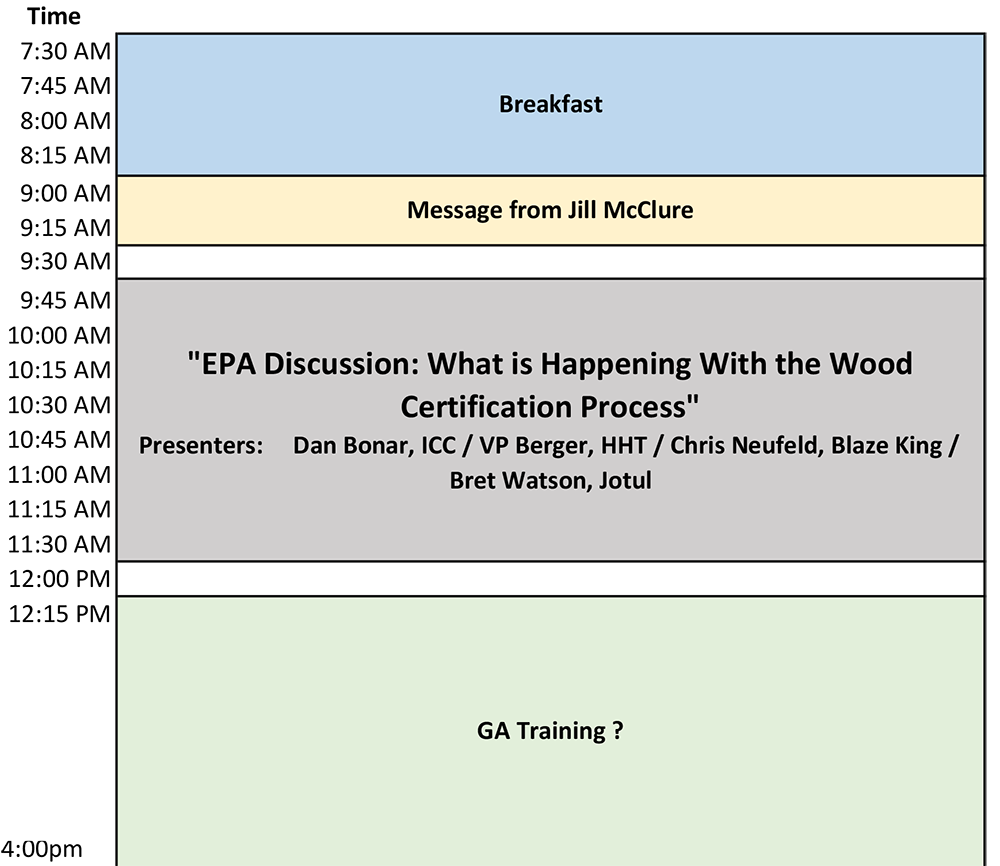
21 February 2024

Subject: NEWS RELEASE: NEHPBA named Affiliate of The Year at 2024 Hearth Industry Expo
February 20, 2024
FOR IMMEDIATE RELEASE
NEHPBA is named Affiliate of The Year at the
Hearth, Patio and Barbecue Association’s 2024 Expo
The Northeast Hearth, Patio and Barbecue Association has experienced strong growth while delivering valuable member services like advocacy and government relations workshop.
Previous president of NEHPA, Joel Etter, is named Advocate of The Year.
NASHVILLE, TN – The Northeast Hearth, Patio and Barbecue Association (NEHPBA) was named Affiliate of The Year at the annual Hearth, Patio and Barbecue Association (HPBA) Expo in Nashville, TN. The NEHPBA, which represents seven Northeast states, was recognized for its member service, affiliate growth, and government affairs support during the HPBA awards ceremony in Nashville.
The annual HPBA awards also featured recognition of past NEHPBA president (2019-2022) Joel Etter as Advocate of The Year for his tireless work representing the interests of the hearth industry in the regional group’s member states and in Washington, DC. Etter is Senior Wholesale Account Manager for Hearth & Home Technologies. To members of HPBA and all the affiliates, this is the highest honor and recognition a member could receive.
“It’s a great honor to be recognized by so many peers and colleagues from the entire HPBA membership across the US and Canada,” Etter said. “Our 2024 Expo in Nashville was one of the biggest and best ever.”
The NEHPBA represents more than 250 retailers and service providers that specialize in gas and wood-burning heating appliances, chimneys and hearths, and installation and service. The vast majority of Northeast HPBA members are independent “mom and pop” small businesses that are significant community contributors in the markets they serve across the region.
“These recognitions are a direct reflection of the excellence and commitment to customer satisfaction that our members demonstrate every day, as well as the strong leadership and advocacy of Joel Etter and other Board members,” said Alexis Ellis, Distribution Sales Manager with Napoleon and current President of NEHPBA. “It’s an exciting time for our industry and a time when our members face some unique challenges. This association is absolutely committed to their success and long-term sustainability.”
NEHPBA and the entire industry are working together with regulators, other businesses, trade associations, and consumers to ensure that a range of energy choices continue to be available in the Northeast and across the United States – that include natural gas, propane and oil heat systems as well as wood-burning appliances.
NEHPBA recognizes the changing landscape of the energy and fossil fuel industry. Its members and leadership are committed to working with government officials and regulators at all levels to increase access to more sustainable and climate-centric fuel sources throughout our homes and businesses.
“I don't think there could be any better way to honor what Joel has done for NEHPBA or the industry. I can't think of anyone more well-deserving of this award,” said Karen Arpino, Executive Director of NEHPBA. “Our association continued its strong pace of member growth into 2024 because of the hard work and advocacy from Joel and other leaders, the dedication to excellence from our entire Board of Directors, and the shared positive experiences our tremendous membership has had with NEHPBA.”
About the Northeast Hearth, Patio & Barbecue Association
Since 1985, the Northeast Hearth, Patio & Barbecue Association (NEHPBA) has represented the interests of the hearth industry in the Northeast. NEHPBA was originally incorporated in January 1985 as the Northeast Solid Fuel Alliance (NESFA) in recognition of the unique demands of business in the Northeast. In June of 1992, NESFA members voted to become the first affiliated member of the national Hearth Products Association (HPA) and became the Northeast Hearth Products Association (NEHPA). In 2002, NEHPA became the Northeast Hearth, Patio & Barbecue Association (NEHPBA) in conjunction with the merger of the national HPA with the Barbecue Industry Association to become the Hearth, Patio & Barbecue Association (HPBA), thus recognizing the diversification of the modern industry. The NEHPBA name has remained since 2002.
4 January 2024
And so it has begun. Seven towns out of 10 have been selected by the DOER to begin the Fossil Fuel Free Pilot Program in MA. This is a ban on fossil fuels in New Construction and Significant Remodels. (However, Lexington’s bylaw adoption of the opt-in code does allow for the use of Fossil Fuels in heating and cooking). See the article from State House News below.
Seven Communities Cleared For Fossil-Fuel Free Building Pilot
Arlington, Newton May Join "Leafy Green Suburbs" In Major Experiment
JAN. 4, 2024.....After years of deliberations, negotiations and regulatory rollout -- and some well-publicized "agita" in the corner office -- a septet of Massachusetts cities and towns can now significantly limit the use of fossil fuels in building projects.
The Department of Energy Resources gave seven communities the final green light to begin a groundbreaking experiment: they will require new construction and major renovation to embrace fossil fuel-free infrastructure for uses like heating and cooling.
Acton, Aquinnah, Brookline, Cambridge, Concord, Lincoln and Lexington can now begin enforcing those policies, effectively mandating that most construction or significant renovation projects inside their borders abstain from oil and gas hookups.
Effective dates vary by community. In several cases, the landmark bylaws will take effect within three months, though Lincoln's will not kick in until six months after DOER's approval and Aquinnah's appears to have already started on Jan. 1.
The bylaws themselves also have a few variations across cities and towns, carving out localized exceptions like allowing continued fossil fuel use in restaurant kitchens.
Another two communities, Arlington and Newton, won "conditional project acceptance" from the state. They each have until Feb. 11, 2024 to prove they fulfilled affordable housing requirements in the law creating the pilot program. [Either Northampton or Somerville will more than likely take the 10th spot, the DOER has until March 1 to approve a replacement for West Tisbury].
Read full article here. There are still some moving pieces here. At this time, these are the ONLY 7 towns (out of 10) in MA that have banned fossil fuels and ONLY in new construction and remodels. If you have a permitting problem on retro’s, replacements, or small remodels: get the code reference and the inspector’s name and send the information to me, Karen@nehpba.org.
Members of the Northeast Hearth, Patio & Barbecue Association (NEHPBA) and its regional Affiliates are the leading companies that produce, sell, or service appliances and accessories in the hearth and barbecue industries in North America. Join today to take advantage of all the benefits your company will receive.
JOIN NOWServicing Massachusetts, Connecticut, New Hampshire, Rhode Island, Vermont, Maine, New York
Copyright © 2025. Northeast Hearth, Patio and Barbecue Association | All rights reserved.